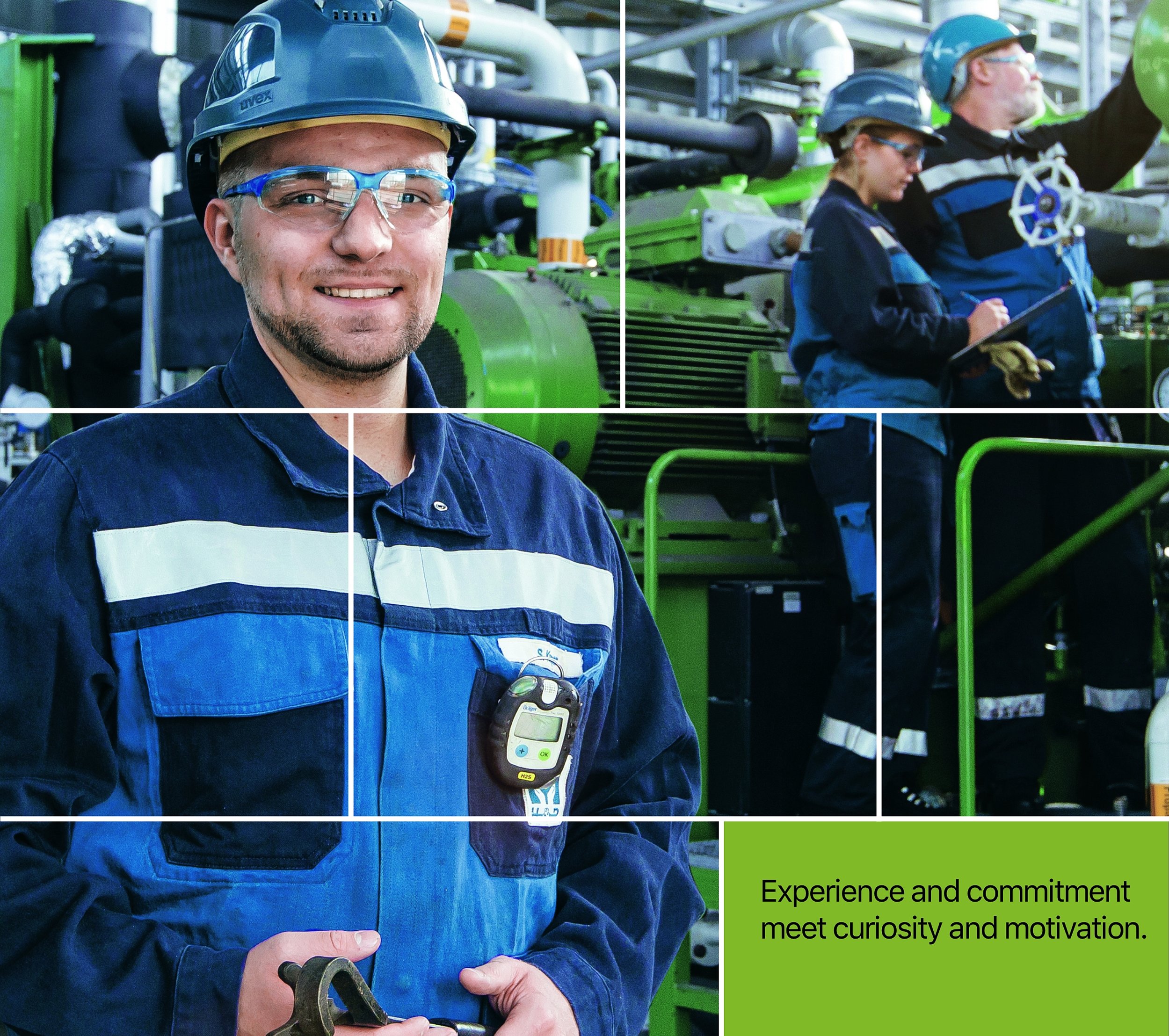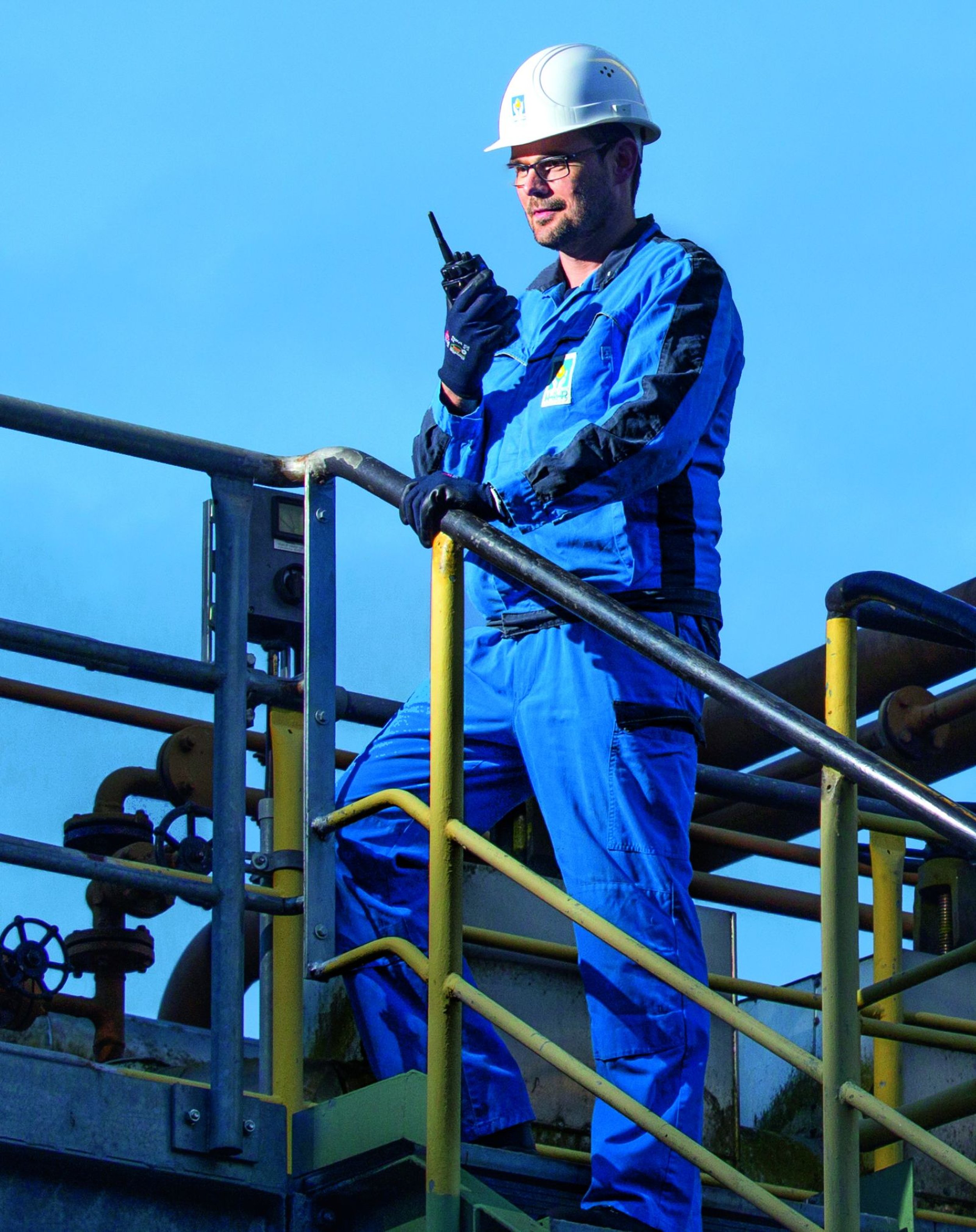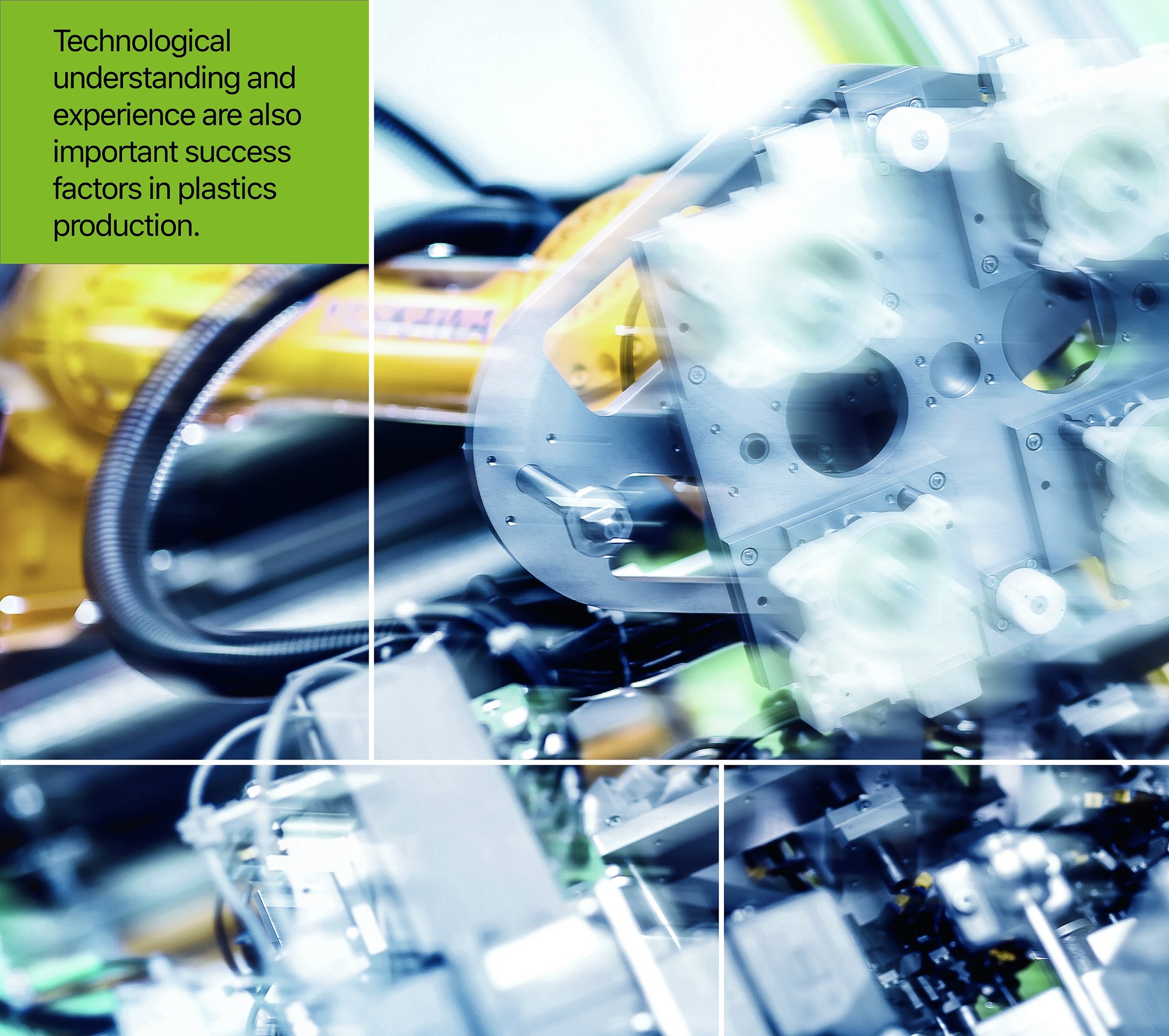On Board
at H&R
Defined processes, a good working atmosphere, development oppor-tunities – there are many reasons to work with H&R.
But, perhaps the most important reason is that our specialists perform their jobs with great passion. And that’s infectious.
Motivation and qualification are crucial for our company’s success. That’s why we cre-
ate a positive working environment at H&R and support team spirit, commit-ment and independent action wherever possible.
The basis for our collaboration provides a modern and well-structured company organization, in which everyone clear-ly knows their duties, their levels of authority and their responsibilities. A clear organizational chart, and precise job and function descriptions for each employee help with this.

Specialty chemicals are a special busi-ness. That is why we also train our junior staff “from the inside”. Chemists, lab technicians and even “normal” specialists for office management can develop their knowledge with us from the ground up. We also offer academic junior staff an attractive “specialist route” at the H&R Group. Within the scope of dual study programs, they can combine theory and practice with one another at an early stage in the chemical and process engineering fields, as well as in other engineering areas.
Finding the best
When we are searching for new staff, we only look at the best candidate for the job. We take both technical and social skills into consideration. Religion, gender and other personal character-istics are irrelevant for us. We want employees who will integrate optimally into our company with their skills. We are also interested in people seeking a lateral career move, who may on pa-per only appear to be the second-best option. The major digital job portals help us with recruitment. But good can-didates often also find their way to us through recommendations and person-al networks. When it comes to management staff, we call on the experience of recruitment consultants. They have an-other way of accessing the market and can speed up the search process signifi-cantly with their intuition.
We are also embracing new approaches for finding and keeping younger new talent – for example, with the launch of our Instagram account for H&R vo-cational trainees. This new account has been managed by our vocational train-ees since this spring and shows what is currently happening at H&R and what makes daily life with us so exciting.
Modern diversity, high standards
Anyone who looks at our careers page today will be in for a surprise, as the tra-ditional oil industry professions are now scarce. Instead, there are project managers for sustainable process tech-nology, software developers, and experts for synthetic materials. We need engineers who calculate the carbon footprint and process engineers who have knowledge about sustainable feedstock.


Insular thinking is a no-go
Everyone joining our company will be introduced to this idea right from the beginning. We know that insular think-ing cannot work in a complex system. It is important that our employees also know what is happening to the right and left of their work areas. To a certain extent, comprehensive knowledge is also a question of health and safety for us. No one is allowed to move around on our refinery premises without hav-ing been briefed on the fundamental rules of conduct.

Growing and updating knowledge
Continuing education is an integral part of what we do. All employees that can be reached electronically are automat-ically linked to our professionally-sup-ported training system. Through the system, employees are allocated elec-tronic training courses according to their job profiles, which they complete within a year. In 2021, the total num-ber of training courses reached more than 28,000. This number is distributed across around 1,000 employees world-wide from 142 Group departments.
We train effectively and efficiently. In total, our employees underwent 5,675 hours of training in the past year, which comes to an average training time of 5.34 hours per participating employ-ee. The rate of successfully complet-ed training courses is usually around 95%. The standard training courses include the topics of environmental and health protection, as well as social and intercultural skills. In addition, there are always job-specific training cours-es. These include hazardous substance and fire safety briefings, which are always held in person, as are numerous other events. From a specific hierarchy level, additional training topics, such as compliance and employee management, are offered to our staff. The train-ing courses are assigned on the basis of job profiles and in consultation with specialists and managers.

